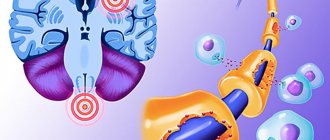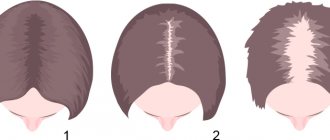Problems with concentration are a real scourge of modern society: more and more people complain of fatigue, distractibility and inability to concentrate on an important task. This can be either a consequence of multitasking and information overload, or a manifestation of a specific mental disorder - attention deficit hyperactivity disorder. “Theories and Practices” tried to figure out what ADHD is and how to cope with it.
Attention deficit hyperactivity disorder reveals all the weaknesses of psychiatry as a science: it is difficult to find a more controversial, vague and mysterious disorder.
Firstly, there is a high risk of misdiagnosis, and secondly, scientists are still arguing whether this is a disease at all or a variant of the norm - and if it is a disease, then can ADHD be considered a full-fledged diagnosis or is it just a set of symptoms, perhaps , not united by one reason. The history of research into attention deficit disorder (which received its current name only in the second half of the twentieth century) began in 1902, when pediatrician George Frederick Still described a group of impulsive, poor learning children and hypothesized that such behavior was not associated with developmental delays. The hypothesis was subsequently confirmed - although the doctor was unable to explain the reasons for this phenomenon. Twenty-five years later, another doctor, Charles Bradley, began prescribing benzedrine, an amphetamine-derived psychostimulant, to hyperactive children. The stimulants turned out to be very effective, although again, for a long time doctors could not understand the mechanism of their effect on patients. In 1970, American psychiatrist Conan Kornetsky first hypothesized that the disease may be associated with decreased levels of certain neurotransmitters in the brain and that such drugs help increase them. The American Psychiatric Association proposed the first methods for diagnosing the syndrome only in 1968, and in Russia they started talking about it only in the second half of the 1990s - and then without much enthusiasm.
A wary attitude towards this topic is understandable: the study of ADHD and the development of diagnostic criteria have been accompanied by scandals since the 1970s - the creators of the American reference book DSM-4 were accused of the fact that their descriptions of the disorder caused an entire epidemic of overdiagnosis in children and adolescents. Some doctors and parents chose medications as the path of least resistance: it was easier to stuff difficult children with medications than to cope with their characteristics using pedagogical methods. In addition, amphetamine-type drugs prescribed to active and uncontrollable children sometimes migrated into the arsenal of their housewife mothers: stimulants gave strength and helped them cope with housework (the most effective horror story on the topic of what the domestic abuse of such drugs leads to is the story of a mother main character in "Requiem for a Dream"). In addition, the criteria for diagnosing the disorder changed several times, which also caused a flurry of criticism. As a result, attention deficit disorder was greatly discredited and for some time fell into the list of “non-existent diseases”.
However, the experience of psychiatrists has shown that the problem, no matter how you classify it, still exists: a certain percentage of the population experiences difficulties associated with poor concentration, inability to self-organize, impulsiveness and hyperactivity. Often these characteristics persist into adulthood, and manifest themselves strongly enough to create serious problems for a person (especially an ambitious one) in school, at work and in his personal life. But usually the disorder is perceived by others and the patient himself not as a serious illness, but as a manifestation of personal shortcomings. Therefore, most adults with such a set of symptoms do not go to doctors, preferring to fight their “weak character” through strong-willed efforts.
What life is like for someone with ADHD
Attention deficit disorder causes difficulties for patients even at school: a teenager with this diagnosis, even if he has a high IQ, finds it difficult to learn material and communicate with peers and teachers. A person with ADHD can immerse himself in a topic that is subjectively interesting to him (however, as a rule, not for long - such people are prone to frequent changes of priorities and hobbies) and show brilliant abilities, but it is difficult for him to perform even simple routine work. At the same time, he is poor at planning, and with a high level of impulsiveness, at foreseeing even the immediate consequences of his actions. If all this is also combined with hyperactivity, such a teenager turns into a school teacher’s nightmare - he will get bad grades in “boring” subjects, surprise others with impulsive antics, disrupt order and sometimes ignore social conventions (since it will be difficult for him to focus on expectations and requirements of others).
Previously, it was believed that the disorder would “dissolve” on its own with age, but according to recent data, approximately 60% of children suffering from ADHD continue to exhibit symptoms of the disease into adulthood. An employee who is unable to sit through the end of a meeting and ignores important instructions, a talented specialist who misses important deadlines by suddenly getting distracted by some personal project, an “irresponsible” partner who is unable to organize his home life or suddenly blows a lot of money on some strange whim. - all of them may not just be weak-willed slobs, but people suffering from a mental disorder.
Causes of the syndrome
Before treating absentminded attention in children, you need to know what could trigger this illness. Unfortunately, scientists have not yet been able to establish the exact cause, but there are several hypotheses indicating that childhood illness may manifest itself due to the following factors:
- Hereditary predisposition. There is a gene responsible for behavior. Some of its features may cause manifestations of attention deficit.
- Trauma at birth. This may include brain damage, prolonged labor, asphyxia (oxygen starvation).
- Diseases of the expectant mother. If the mother was ill with something during pregnancy, this can lead to impaired fetal development, hypoxia and other negative consequences.
- Bad habits. During pregnancy, the mother could smoke, drink alcohol or use drugs.
- Rhesus conflict. It occurs if the mother’s Rh factor is negative and the baby’s is positive.
- Diseases of internal organs. In particular, the brain, kidneys, heart.
This syndrome is often associated with hyperactivity. And this is not without reason; with attention deficit, a person is too emotional, restless, and there is increased excitability. These signs also apply to hyperactive children.
Diagnostic problems
According to various estimates, 7-10% of children and 4-6% of adults suffer from this disease. At the same time, the popular idea of a patient with ADHD as exclusively an impulsive fidget is already outdated - modern science identifies three types of the disorder:
— with an emphasis on attention deficit (when a person does not have signs of hyperactivity, but it is difficult for him to concentrate, work on the same task for a long time and organize his actions, he is forgetful and gets tired easily)
— with an emphasis on hyperactivity (a person is overly active and impulsive, but does not experience significant difficulties with concentration)
- mixed version
According to the American classification of mental disorders DSM-5, the diagnosis of “attention deficit/hyperactivity disorder” can be established no earlier than 12 years. In this case, the symptoms must be presented in different situations and settings and manifest themselves strongly enough to significantly affect a person’s life.
ADHD or bipolar disorder? One of the problems in diagnosing the syndrome is that in some ways the syndrome overlaps with other mental illnesses - in particular, cyclothymia and bipolar disorder: hyperactivity can be confused with hypomania, and fatigue and problems with concentration can be confused with signs dysthymia and depression. In addition, these disorders are comorbid - that is, the probability of getting both at the same time is quite high. In addition, suspicious symptoms may be due to non-mental illnesses (eg, severe head trauma or poisoning). Therefore, experts often recommend that those who suspect they have attention deficit disorder undergo a routine medical examination before contacting psychiatrists.
Gender nuances. Last year, The Atlantic magazine published an article about how ADHD manifests itself differently in women than in men. According to the studies described in the article, women with this disorder are less likely to show impulsivity and hyperactivity and more often show disorganization, forgetfulness, anxiety and introversion.
The editors of T&P remind you that you should not rely entirely on self-diagnosis - if you suspect you have ADHD, it makes sense to consult a specialist.
Symptoms of distracted attention
The set of symptoms of absent-minded attention in a child directly depends on his character, social living conditions, upbringing, age, and severity of the disorder. Therefore, you first need to be able to correctly recognize the first signs of the syndrome. They may be:
- Inability to concentrate for a long time both at home and at school;
- Restlessness and carelessness;
- He cannot understand the words spoken to him or simply does not listen;
- Lack of self-control;
- He finds it difficult to follow rules and instructions;
- Tendency to disorder, things are always scattered on the desk, toys are on the floor;
- When doing something, he is distracted by any little things;
- Absent-mindedness and frequent loss of one's belongings;
- Forgetfulness associated with impaired attention;
- Tendency to anxiety;
- Problems with communication (with children, adults, teachers);
- Impatience and obsession;
- Increased speech activity, and the child cannot listen to the interlocutor and interrupts him;
- Inability to learn, new information is not perceived in full, difficulty in writing;
- Cannot finish what he starts;
- Bad behavior, the child is noisy, constantly spinning and waving his arms.
It is very important to monitor your child and at the first symptom that appears, begin to pay more attention to him.
Losing control
The genetic factor plays a large role in the development of ADHD - if your close relative suffers from this syndrome, the likelihood that you will be given the same diagnosis is 30%. Current theories link ADHD to functional disturbances in the brain's neurotransmitter systems—in particular, to the balance of dopamine and norepinephrine. Dopamine and norepinephrine pathways are directly responsible for the executive functions of the brain - that is, for the ability to plan, switch between different stimuli with volitional effort, flexibly change one's behavior depending on changing environmental conditions and suppress automatic reactions in favor of conscious decisions (this is what the Nobel laureate What Daniel Kahneman calls "slow thinking"). All this helps us control our behavior. Another function of dopamine is to maintain the “reward system,” which controls behavior by responding to “correct” (from a survival point of view) actions with pleasant sensations. Disturbances in the functioning of this system affect motivation. In addition, people with attention deficit hyperactivity disorder may also have abnormalities in serotonin balance. This can cause additional problems with organization, timing, concentration, and emotional control.
Disorder or personality trait?
The concept of neurodiversity, an approach that views different neurological features as a result of normal variations in the human genome, is now gaining popularity. Adherents of neurodiversity are interested in both sexual orientation and gender self-identification, as well as some genetically determined mental illnesses, including autism, bipolar disorder and attention deficit disorder. Some scientists believe that many of the behaviors that lead to a diagnosis of ADHD are natural personality traits and do not indicate unhealthy abnormalities. But because such traits make it difficult for a person to function in modern society, they are labeled as “disorders.”
Psychotherapist Tom Hartman developed the spectacular “hunter and farmer” theory, which posits that people with ADHD retain the genes of primitive people responsible for behavior optimal for hunters. Over time, humanity switched to agriculture, which required more patience, and “hunting” qualities - quick reactions, impulsiveness, receptivity - began to be considered undesirable. According to this hypothesis, the problem lies only in setting tasks, and the ability of people with the syndrome to “hyperfocus” - strong concentration on a task that is subjectively interesting to them to the detriment of all others - can also be considered as an evolutionary advantage. True, Hartman is difficult to consider as an objective researcher - his son was diagnosed with ADHD.
But in any case, there is a sound grain in this theory: since one of the most important criteria of mental health is the ability to successfully cope with everyday tasks, many problems can be mitigated by choosing a suitable field of activity. That is, one where routine processes and patience play a lesser role and a “sprinting” temperament, the ability to improvise, curiosity and the ability to easily switch between various activities are valued. For example, it is believed that with ADHD you can make a good career in sales or entertainment, in the arts, and in “adrenaline” professions (say, a firefighter, a doctor, or the military). You can also become an entrepreneur.
Protect your concentration
The human brain was not designed to multitask. The term "multitasking" was coined by IBM in 1965 to describe the capabilities of a computer. Now we use it for people without realizing that our concentration is a limited resource. By focusing on one task, a person expends energy, so that each subsequent task is performed less efficiently. Therefore, forget about multitasking and learn to concentrate on the main thing, following the example of Tom Ford. Practice mindful pauses regularly to make the most of your time.
Photo: @laurentcastellani
How to be treated
Medications: Psychostimulants containing amphetamine (Aderall or Dexedrine) or methylphenidate (Ritalin) are still used to treat ADHD. Drugs from other groups are also prescribed, for example, norepinephrine reuptake inhibitors (atomoxetine), antihypertensives (clonidine and guanfacine) and tricyclic antidepressants. The choice depends on the specific manifestations of ADHD, additional risks (propensity for drug addiction or concomitant mental disorders) and the desire to avoid certain side effects (an approximate list of “side effects” from different drugs can be found here)
Since in Russia psychostimulants are firmly entrenched in the list of dangerous narcotic substances that are not available even by prescription, domestic psychiatrists use atomoxetine, guanfacine or tricyclics.
Psychotherapy. Cognitive behavioral therapy is believed to help with ADHD, which, unlike many other schools of psychotherapy, emphasizes working with the conscious mind rather than the subconscious. For a long time, this method has been successfully used in the fight against depression and anxiety disorders - and now special programs have appeared for the treatment of attention deficit disorder. The essence of such therapy is to develop awareness and not allow irrational patterns of behavior to take over a person’s life. Classes help control impulses and emotions, deal with stress, plan and systematize your actions and bring things to completion.
Nutrition and dietary supplements. You can try to adjust your diet in accordance with the advice of foreign medicine. The most common recommendations are to take fish oil and avoid sudden spikes in blood glucose levels (that is, say no to simple carbohydrates). There is also evidence showing a relationship between low levels of iron, iodine, magnesium and zinc and increased symptoms. Some studies suggest that small amounts of caffeine may help you concentrate, but most experts still advise against drinking too much coffee. In any case, adjusting your diet is more of a “maintenance” measure than a full-fledged way to combat the disorder.
Schedule. People with ADHD, more than anyone else, need planning and a clear routine. An external “backbone” helps to compensate for internal problems with systematization and time management: timers, organizers and to-do lists. Any large projects should be divided into small tasks and rest periods and possible deviations from the schedule should be included in the plan in advance.









